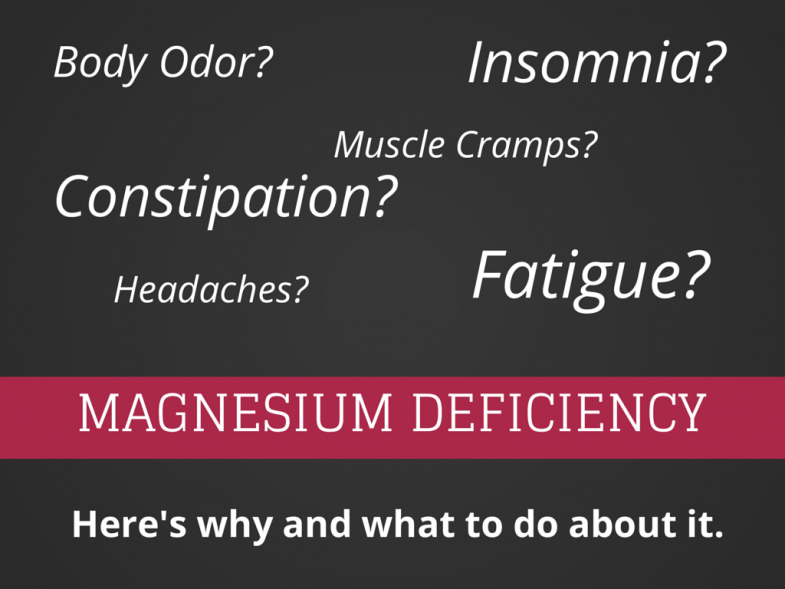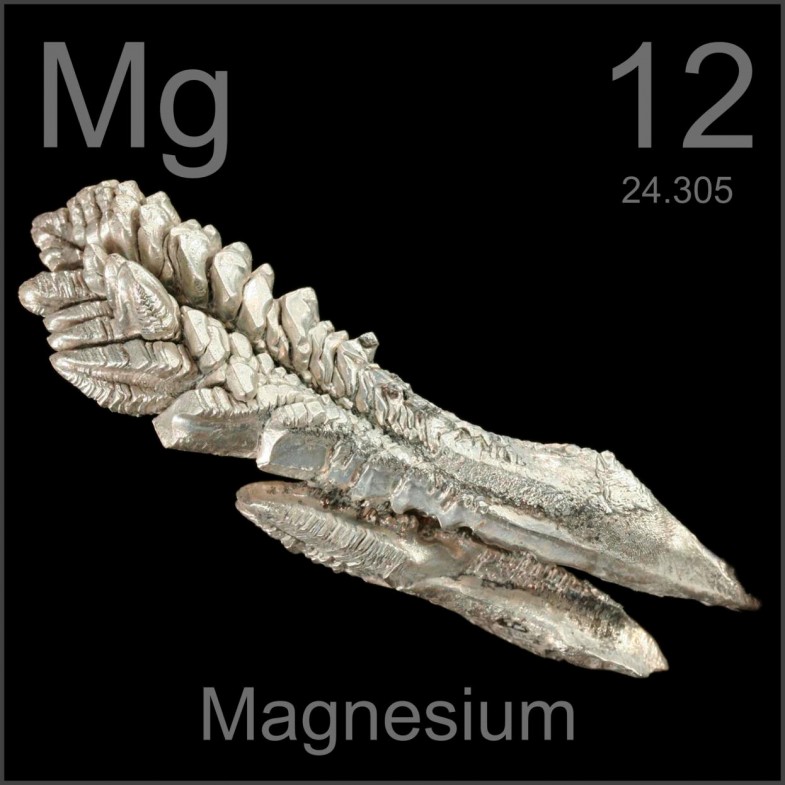
Source: draxe.com mindbodygreen.com
Are your chocolate cravings so intense that you feel like it screams your name? Do you ever jump out of bed in the middle of the night because of a muscle spasm? Or, no matter what you try, do you have difficulty sleeping? There’s a good chance you’re deficient in magnesium.
Substantial numbers of Americans are deficient in the mineral magnesium. However, most people have no idea that they’re missing this vital mineral. Nutritionists often call magnesium the master mineral because it affects over 300 different enzymatic processes that help your body function properly.
As a registered dietitian, I’d like to share seven of the most common symptoms of magnesium deficiency — backed up by research — I see when clients come for nutrition counseling:
1. Muscle cramps or spasms
If you’ve had one of these, you know how awful they can be whether you’re sitting at your desk or awakened in the middle of the night with a painfully tight calf! Muscle cramps are a result of muscle spasms, which are involuntary muscle contractions. Magnesium helps relax muscles throughout your body, so when you’re deficient your muscles will contract involuntarily.
2. Trouble sleeping
Millions of Americans have difficulty falling asleep or staying asleep. Magnesium plays an important role in the function of your central nervous system. Without sufficient magnesium, you may experience insomnia. Also, magnesium levels drop in your body at night, leading to poor quantity and quality of REM sleep, which is the most critical sleep cycle to recharge your body and mind.
3. Chocolate cravings
Dark chocolate is high in magnesium, and one square provides about 24% of your daily value of magnesium. Intense “I have to have it” chocolate cravings are another sign of magnesium deficiency. Your body actually craves what it needs sometimes.
4. Anxiety
Magnesium is the most powerful relaxation mineral. If you experience anxiety, this is a common early symptom of how your central nervous system is affected by magnesium deficiency. When you feel anxious, taking 200mg of magnesium may make you feel more relaxed.
5. High blood pressure
Many people wonder why they have high blood pressure even though they follow a healthy, whole food diet. Magnesium may be the answer; another important function of magnesium is relaxing and dilating your blood vessels. When you’re low in magnesium, your blood vessels constrict more, causing high blood pressure. Adequate magnesium levels also help balance your electrolytes. Unbalanced electrolytes can create high blood pressure as well.
6. Irregular heartbeat
It has become common for people to develop heart arrhythmias, then be put on medications. Your heart is a muscular organ, making the cardiovascular system highly dependent on magnesium to properly function. If your heart is deficient in magnesium, it can’t contract properly, which may cause irregular heartbeats.
7. Constipation
If you experience constipation regularly, that’s another sign you’re deficient in magnesium. When you’re low in magnesium, your intestines contract more, making it harder for stool to pass. Not only will magnesium relax your bowel to create a more regular bowel rhythm, but it also has an osmotic effect. Magnesium pulls water into the bowels, softening the stool. Choose magnesium citrate to help constipation.
8. Muscle Pain / Fibromyalgia
A study published in Magnesium Research examined the role magnesium plays in fibromyalgia symptoms, and it uncovered that increasing magnesium consumption reduced pain and tenderness and also improved immune blood markers.
Oftentimes linked to autoimmune disorders, this research should encourage fibromyalgia patients because it highlights the systemic effects that magnesium supplements have on the body.
9. Osteoporosis
The National Institute of Health reports that, “The average person’s body contains about 25 grams of magnesium, and about half of that is in the bones.” This is important to realize, especially for the elderly, who are at risk of bone weakening.
Thankfully, there’s hope! A study published in Biology Trace Element Research uncovered that supplementing with magnesium slowed the development of osteoporosis “significantly” after just 30 days. In addition to taking magnesium supplement, you will also want to consider getting more vitamin D3 and K2 to naturally build bone density.
10. Type II Diabetes
One of the four main causes of magnesium deficiency is type II diabetes, but it’s also a common symptom. U.K. researchers, for example, uncovered that of the 1,452 adults they examined low, magnesium levels were 10 times more common with new diabetics and 8.6 times more common with known diabetics.
As expected from this data, diets rich in magnesium has been shown to significantlylower the risk of type 2 diabetes because of magnesium’s role in sugar metabolism. Another study discovered that the simple addition of magnesium supplementation (100 milligrams/day) lowered the risk of diabetes by 15 percent!
11. Fatigue
Low energy, weakness and fatigue are common symptoms of magnesium deficiency. Most chronic fatigue syndrome patients are also magnesium deficient. The University of Maryland Medical Center reports that 300–1,000 milligrams of magnesium per day can help, but you do also want to be careful, as too much magnesium can also cause diarrhea.
If you experience this side effect, you can simply reduce your dosage a little until the side effect subsides.
12. Migraine Headaches
Magnesium deficiency has been linked to migraine headaches due to its importance in balancing neurotransmitters in the body. Double-blind placebo-controlled studies have proven that 360–600 milligrams of magnesium daily reduced the frequency of migraine headaches by up to 42 percent.
Most of my clients have at least one of the above symptoms and have found great relief after increasing their magnesium levels.
How can you increase your magnesium levels?
First, stop eating foods that deplete nutrients, such as flour and sugar. Instead eat foods high in magnesium, such as meat, avocados, leafy green vegetables and nuts. If you’re eating chocolate to restore some of your magnesium, make sure it’s at least 70% cocoa, and keep your chocolate intake to one ounce or less per day.
Even if you eat a healthy diet, you will likely still need to supplement with magnesium. Look for a good-quality magnesium supplement in the form of magnesium glycinate, which is one of the most absorbable forms. Most people need about 400 mg, but you can go up to 1,000 mg per day if needed. Take magnesium at bedtime for best absorption and to provide deep, rejuvenating sleep!
If you want to take control of your bone health and remain independent and active for years to come. BUY NOW!




































